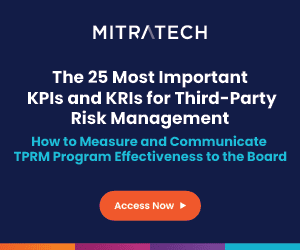Many professionals who experience ethical misconduct in the workplace quietly leave their company, doing their best not to burn any bridges. This course of action is understandable, but assembling opposition and engaging the issue can prevent misconduct from recurring.
As a senior member of the Wharton School faculty, I have noticed a new pattern emerging from discussions with students in my required MBA course on law, ethics and responsibility. More of them are telling stories about quitting their last jobs (including plum positions at some of the most prestigious firms in the world) to escape toxic bosses and work cultures they felt powerless to change. This has come up often enough that I now have a name for these students: ethics refugees.
Many followed a simple motto: “stay silent and stay safe.” They kept their experiences carefully hidden from their former employers on their way out. Why? They did not want to create any unnecessary obstacles that might complicate the escape route they had so carefully planned. Indeed, some remained silent because they were counting on letters of recommendation from the very people who had bullied them or pressured them to break the rules. Listening to their stories, I have come to appreciate what corporate ethics and compliance officers are up against. My students are some of the best and brightest people of their generation. Losing such people is another one of the many hidden costs of misconduct in corporate life.
Here are a few of the stories my students have shared (suitably disguised to protect their privacy):
- A young woman in her dream marketing job had become accustomed to the sexual harassment that was common in her industry. But the last straw came at a firm dinner celebrating a successful product launch. A client repeatedly slipped his hand on her knee as they were seated next to one another at the restaurant. She brushed it off; it returned; she left the table on a pretext; it returned when she sat down again. Finally, she switched seats with a young male colleague. She later reported this to her boss, who responded with a shrug. “He’s an important client; nobody got hurt.” She dropped the issue and began applying to business schools with the goal of finding another industry in which to apply her marketing skills.
- Sexual misconduct is a reoccurring theme for ethics refugees. A gay man told us that his boss at one of the world’s top consulting companies gave him a poor performance rating after he refused to have sex with one of the firm’s clients. The incident took place during an extended engagement in which a top executive at the client firm made advances toward this young man, the most junior member of his consulting team. The student refused and reported the matter to the partner in charge. The partner told him to go back and “make the client happy” so the firm would get lucrative follow-up business. He refused, was rated poorly on the engagement and immediately began researching MBA programs.
- A private equity analyst watched as his boss blatantly misrepresented the value of several companies in the firm’s portfolio. The firm was raising a new round of investment capital, and the partner did not want to disclose the true state of these poor-performing assets to prospective investors. A week after the new funds were raised, the partner downgraded the value of these companies. This student was permanently turned off to private equity by these events and came to our MBA program looking for ways to use his financial skills in a more socially minded sector.
- A young lawyer at a large, high-powered law firm found herself repeatedly bullied and intimidated by a senior partner, who sought a legal opinion approving activities that were, in her mind, in clear violation of the Foreign Corrupt Practices Act. She stood her ground, but the resulting angry tirade could be heard throughout the work area. She walked out of the office and never returned, then decided to apply to business school — hoping to find more ethical cultures in business than she had endured in “big law.”
Of course, the problems that gave rise to these “I quit” decisions will crop up again no matter where these students find new professional homes. Bad behavior is not the exclusive preserve of any industry, and the pandemic seems to have made these problems worse. The 2020 annual “State of Ethics and Compliance in the Workforce” survey by the Ethics and Compliance Initiative (ECI) revealed that 63 percent of middle managers and 51 percent of top managers reported pressure in the last year to compromise their organizations’ ethical standards. These figures are all-time highs for the past decade. Worse still, they told ECI researchers that when they reported wrongdoing, 79 percent reported some form of retaliation — another all-time high.
Here is the good news: Based on my class discussions, I am convinced that these young people are strongly motivated to build ethical cultures. They just need some savvy guidance to help them do it.
Below, I summarize five of the “rules” I offer my students for managing ethical conflicts so they will be better prepared to stand and fight rather than cut and run. I offer these as examples of what someone from outside your community is teaching smart, passionate people about creating ethical workplaces.
Rule #1: Bring Your Conscience to Work Everyday
This sounds basic, but it can be easy to lose your conscience as the technical details of training on everything from sexual harassment to conflicts of interest pile up. My ethics refugees have reminded me that for individuals, the battle for an ethical culture is won and lost at this very basic level. Does the day-to-day conduct at the office — the part that takes place behind closed doors between bosses and employees or late at night among peers — align with common sense intuitions about right and wrong?
Dr. Jeffrey Wigand, who famously exposed the tobacco industry’s decades-long conspiracy to hide the health risks of smoking, has suggested that we replace the concept of whistleblowing with a much simpler identity for ethically minded employees. We should ask them to be no more (or less) than “people of conscience.” People of conscience are those who take actions in everyday professional life that consistently protect and promote the human good. When employees confront difficult decisions about reporting wrongdoing, Wigand advocates that they start by asking, “What would a person of conscience do?” This question has the added value of bringing appropriate role models to mind. Most of us will never meet a “whistleblower,” but we all know people of conscience we admire for their steadfast willingness to keep their core values at the top of their priority list.
Rule #2: There Is No Such Thing as an Unimportant Conflict Over Values
One of my students told me that their parents had taught them, “Never do evil just because it is a small evil.” I think this is the secret to a strong ethical culture. The author of “The Chronicles of Narnia,” theologian C.S. Lewis, memorably put it this way:
“Good and evil both increase at compound interest. That is why the little decisions you make every day are of such infinite importance.”
By treating all ethical issues, even small ones, as important, people form habits of action that make the larger problems easier to confront and handle appropriately.
Work is a complicated place, so I offer my students a relatively short list of core values that deserve this sort of vigilant attention. These form the acronym CRAFT:
- Concern for people’s safety and well-being;
- Respect and dignity;
- Accountability for promises, professional standards, civility and conflicts of interest;
- Fair treatment, including matters of social justice;
- Truth-telling and transparency.
Standing by while a boss misleads a client about the reasons a report is late or a peer tells a sexist “joke” at a late-night meeting may be small things. But they are steps down a road that leads to the wrong destination. People of conscience are leaders, not followers, when it comes to values.
Rule #3: Be Morally Humble. Do Not Forget That Good People Can Be Pressured to Do Bad Things
Sherron Watkins, the internal auditor who helped bring to light the massive Enron corporate accounting scandal in 2001, once said that you need only three things to create an ethical crisis: pressure, opportunity and a face-saving rationalization. I help my students classify the pressures they will face so they can recognize (and reject) the rationalizations that will tempt them to go astray.
- Peer pressure brings with it the excuse that “everybody does it.”
- Authority pressure prompts the thought that “I am just following orders.”
- Perverse incentives like crazy deadlines and misaligned bonus structures often make it seem that “it’s OK to do it because it’s not my fault.”
- Role pressure triggers the intuition that “this is just part of the job.”
- Larger, systemic pressures such as bribery, nepotism, racism or sexism prompt the idea that “I can’t fix this, so I just have to deal with it.”
Against the pressures noted above, I advise my students to have counterarguments prepared that meet these rationalizations on their own terms.
- For peer pressure: “No, everybody does not do it — because I don’t.”
- For authority and incentive pressures: “I have free will and must make my own moral choices.”
- For role pressure: “My job description does not define who I am as a person of conscience, especially when it comes to acting against my core values.”
- For systemic pressures: “Systemic change always begins with individuals.”
Rule #4: Never Act Alone — Leverage the Power of Two
Isolation was one of the things almost all my ethics refugees suffered before they decided to quit. I try to show that a big part of being an effective advocate for values is summoning what I call the “Power of Two.” The research on peer and authority pressure conclusively shows that the support of just one additional person exponentially increases the odds of effective action.
Rule #5: Prepare for a Marathon, not a Sprint — Use the “OODA Loop”
Napoleon Bonaparte is said to have summed up his approach to military strategy with these words: “Engage … and then see what happens.” When it comes to standing up for their core values, I advise students to treat the challenge more like a campaign than a one-off event. I introduce a simple model based on the tactics combat pilots use, the OODA Loop. The acronym stands for Observe, Own, Decide, Act — and then get ready for the “loop.” At the loop stage, you see what happens, adjust and then keep moving forward.
My ethics refugees walked away from the conflicts they faced, and thus failed to “Own” the problem. This is, I think, the crucial stage of the OODA Loop process. Corruption can take hold at any firm, including ones with solid ethics and compliance systems, if employees are not motivated to take personal responsibility for what is happening in their workplaces. On the other hand, creative employees trapped in a toxic work environment can take effective action if they own the problem, work together, use all the tools the company makes available and understand how to pull outside levers such as the press and regulators.
Conclusion
Ethics refugees tend to skip their exit interviews. But my position at Wharton has offered me a unique window into their collective experiences. My conclusion: These are people every firm should welcome to their ranks. They cared deeply enough about their values to trade financial security for the chance to pivot to truly ethical cultures. I see my job as helping them learn to create and maintain those cultures as leaders of conscience.









